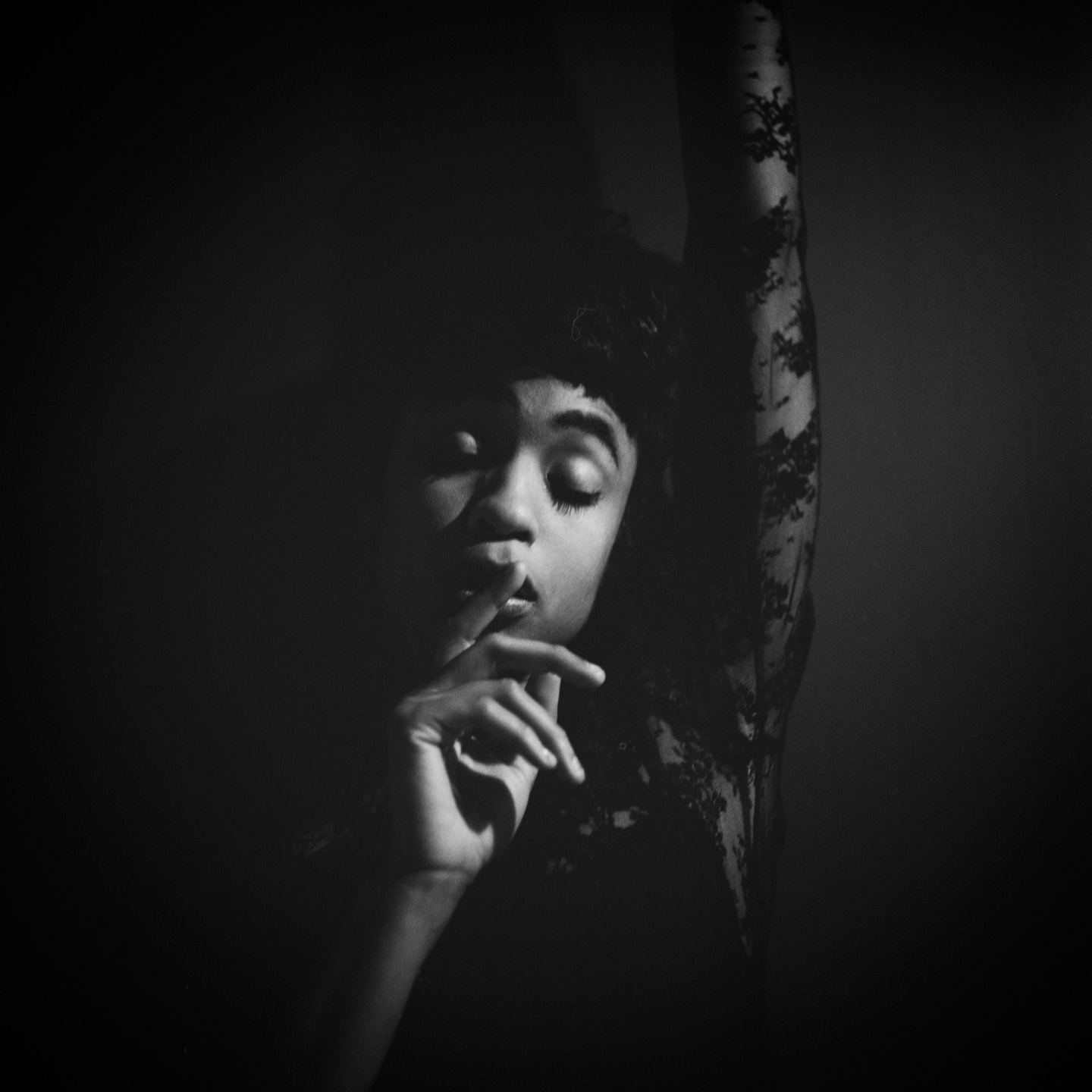Meet Adia Victoria, A Poet Making Country Music A Little Creepier
With ghostly folk tunes, a sharp-tongued Southern singer is rewriting her life story.

Adia Victoria starts each sentence knowing exactly where it will end. The 29-year-old Nashville-based blues singer speaks like a writer—a very good one. Over the phone from a tour stop in Arkansas, she tells me about Bart, the 85-year-old Quaker she subleased a room from in New York. He would give her cash to buy Parliaments from the bodega, extract a single cigarette, then gift her the pack. She remembers meeting her stepsister from her Trinidadian father’s previous marriage at a train station in Cologne, vividly describing the moment they realized they had the same laugh. She recalls writing a novel at age 11 about a Jewish girl living in Germany on Kristallnacht, which she dismisses now as a Lois Lowry rip-off. “I’ve always been drawn to themes of women in times of darkness,” she says.
Victoria and her four siblings were raised as Seventh Day Adventists in South Carolina, splitting their time between the economically decimated Spartanburg and a small mountain town called Campobello. Just before 6th grade, Victoria’s mother withdrew her from the insulated environment of the church and enrolled her in public school, a jarring transition that fell quickly on the heels of another life-altering upset: her parents’ divorce. Victoria describes the split as “a seismic shift” that fractured both her internal and external worlds. Her natural aptitude for language became her main form of self-expression; poetry and short stories provided a safe space where a little girl could write her own fate. “My childhood made me into an artist,” she explains. “I am constantly reassembling and deconstructing and reconstructing—and I do it out of necessity.”

Spurred on by restlessness, Victoria struck out for New York after high school. After just a couple of years, she felt lost there too. By 21, she had returned to the South and was living with her best friend in a gold-painted apartment in Atlanta, pulling in $50K a year as a telemarketer. When Victoria was gifted a guitar by another friend, she became obsessed, regularly practicing finger exercises and chord shapes while she sold cable service over the phone. She got into the music of raw Delta blues legends Robert Johnson and Junior Kimbrough, a discovery that helped her make sense of being black and from the South in a way she never had before. “Being from a backwood area, growing up in isolation, and dealing with misery and sadness—[the music] touched something spiritual in me,” Victoria explained. I don’t know nothing ‘bout Southern belles/ But I can tell you something ‘bout Southern hell, she sings on “Stuck in the South,” a swampy ballad from her debut three-song EP, Sea of Sand, which she released in the spring of 2015.
Victoria’s output may be tiny so far, but her sinister breed of gothic country music already feels fully formed. Set against muddy guitars and not much else, her words are evocative but sparse. Here’s a song for Atlanta, my sweetheart sweating in the night, she sings on Sea of Sand’s title track. There’s a kind of emotional economy in Victoria’s lyricism, one that—with its tantalizingly vivid details—promises to give you everything, but holds a lot back. “It’s the artistry of getting to the point quickly in your songs,” she says, a trick she learned from country greats like Hank Williams and Patsy Cline. “It’s paring down any nonsense and distilling it to its truest form.”
In some ways, Victoria’s whole lifestyle is an exercise in paring down the nonsense: she lives with her mom and doesn’t own a computer or have a driver’s license. When she’s not working closely with Yo La Tengo collaborator Roger Moutenot on her forthcoming full-length debut, she rides buses around Nashville; she calls it “living like a ghost.” In her free time, she reads Angela Davis, Maya Angelou, Lillian Smith, Flannery O’Connor, and other writers who “took a very strict, clinical look at society.” These are her role models, women who successfully dragged outsider narratives into the mainstream. “I wanna keep telling stories of the other—of those who have had darkness thrown over them,” Victoria says when asked where she sees her music taking her. “I wanna keep prodding underneath that rock and shining a light on these voices who have been chanting.”

